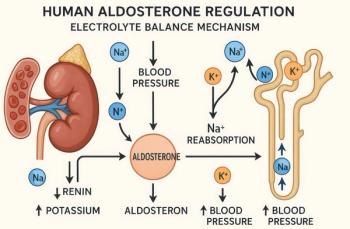
A Future of Beta-Blockers “Plus” to Treat Hypertension?
More about the current move away from beta-blocker therapy for hypertension as discussed by speakers at the 2013 ASH annual meeting. Following are some more of the key points, including a discussion of so-called beta-blockers "plus."
In my previous article,
Following are some more of the key points, including a discussion of so-called beta-blockers “plus.”
1. Why have the efficacy and safety profiles of beta-blockers and angiotensin receptor blockers (ARBs) changed? Much of the data reviewed in my earlier article were obtained in an era that did not include prompt revascularization, statins, antiplatelet therapies, and angiotensin-converting enzyme inhibitors/ARBs. The new era of hypertension management considered by JNC 2013 and the National Institute for Clinical Excellence committee has proved that beta-blocker benefits may have been strictly limited to a demographic “gone by” that did not have access to interventional expertise.
A good example is patients enrolled in the
2. Other data add to the persisting concerns regarding beta-blockers and their purported cardioprotection. In ASCOT-LLA, patients treated with atorvastatin/placebo were compared with those treated with atorvastatin and beta-blockers. Significant end points were better in the statin/placebo group than in the statin/beta-blocker group. The results suggest that beta-blockers interfere with important statin pleiotropic effects essential to cardioprotection. Earlier studies suggesting beta-blocker benefits preceded statins.
3. Unbelievers quote the mantra that it is blood pressure lowering per se and not the agent used that is important. This observation is only true based on ALLHAT. The primary end points in ALLHAT were no different with similar blood pressure lowering with 3 antihypertensives. However, the 3 agents were chlorthalidone, amlodipine, and lisinopril. There were no beta-blockers used in this study. All antihypertensives are not created equally! Similar blood pressure reductions achieved by beta-blockers are not the same as those consequent to the agents used in ALLHAT.
4. Far and away the majority of studies determining the negatives of beta-blockers were performed with atenolol. This particular beta-blocker is more suspect than any other. Studies have demonstrated that it raises central blood pressure (the pressure experienced by the heart, kidneys, and brain) despite lowering brachial pressure. This paradoxical effect is a bad one. A meta-analysis of atenolol versus other antihypertensives found a risk ratio of 1.26 for all events with atenolol as opposed to other agents.
5. The prior hallowed ground for beta-blockers was not hypertension, but rather post-MI protection. The INVEST trial compared verapamil with beta-blockers in this role. Verapamil was noninferior to atenolol in all aspects except that atenolol increased the risk of stroke.
6. On to beta-blockers “plus.” The term means that beta blockade is accompanied by other important actions. Carvedilol also provides alpha-blocking effects. Nebivolol also provides nitric oxide generation. As a result of the “plus” portion, for example, nebivolol does not increase central blood pressure. The caveats surrounding beta-blockers in general, and especially atenolol, do NOT apply to beta-blocker plus agents!
JNC 2013 is right around the corner. I do not have a crystal ball, and speakers at ASH could only speculate, but it looks like the beta-blocker era for treating blood pressure will be limited to beta-blockers plus.
Newsletter
Enhance your clinical practice with the Patient Care newsletter, offering the latest evidence-based guidelines, diagnostic insights, and treatment strategies for primary care physicians.

































































































































